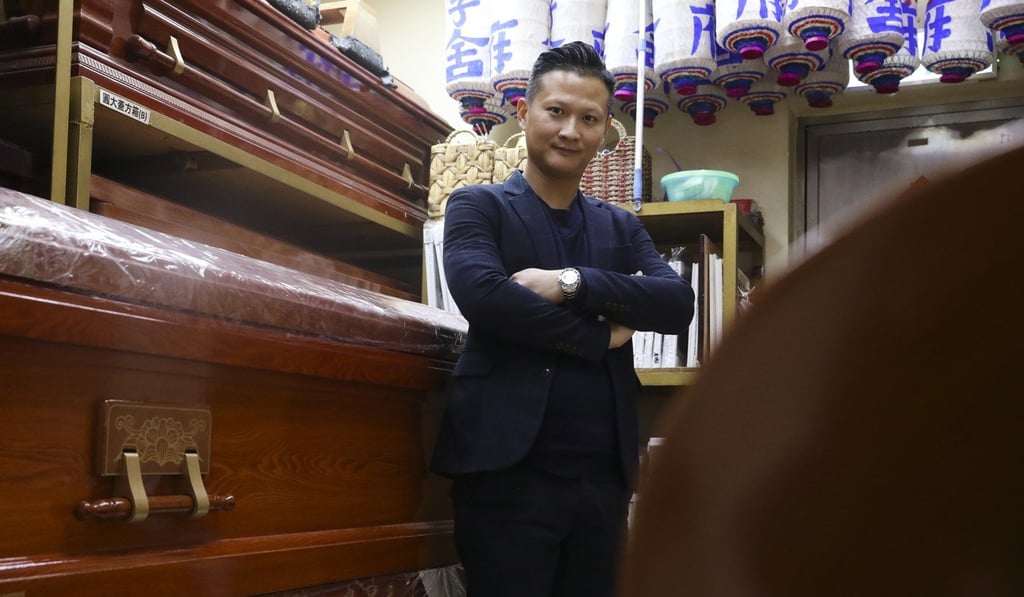Advertisement
Coronavirus outbreak leaves Hong Kong funeral homes facing coffin shortage
- City’s industry supplied by factories in Guangdong that were ordered to close to stop spread of virus
- Hong Kong government had to step in but only enough coffins left to last until end of the month
Reading Time:2 minutes
Why you can trust SCMP

Hong Kong is facing a coffin shortage after the coronavirus outbreak stopped production over the border.
Factories in Guangdong province were ordered to close until February 10 to contain the spread of the highly contagious virus, which causes the disease Covid-19.
The shortfall has triggered a warning from Hong Kong funeral parlours that stocks could dry up within days.
Advertisement
Kwok Hoi-pong, chairman of the Funeral Business Association in Hong Kong, told the Post the temporary ban also covered the delivery of finished coffins to the city.
According to Kwok, Guangdong accounts for 99 per cent of the coffins used in the city, and demand for them ranged from 120 to 140 per day.
Advertisement

Advertisement
Select Voice
Select Speed
1.00x